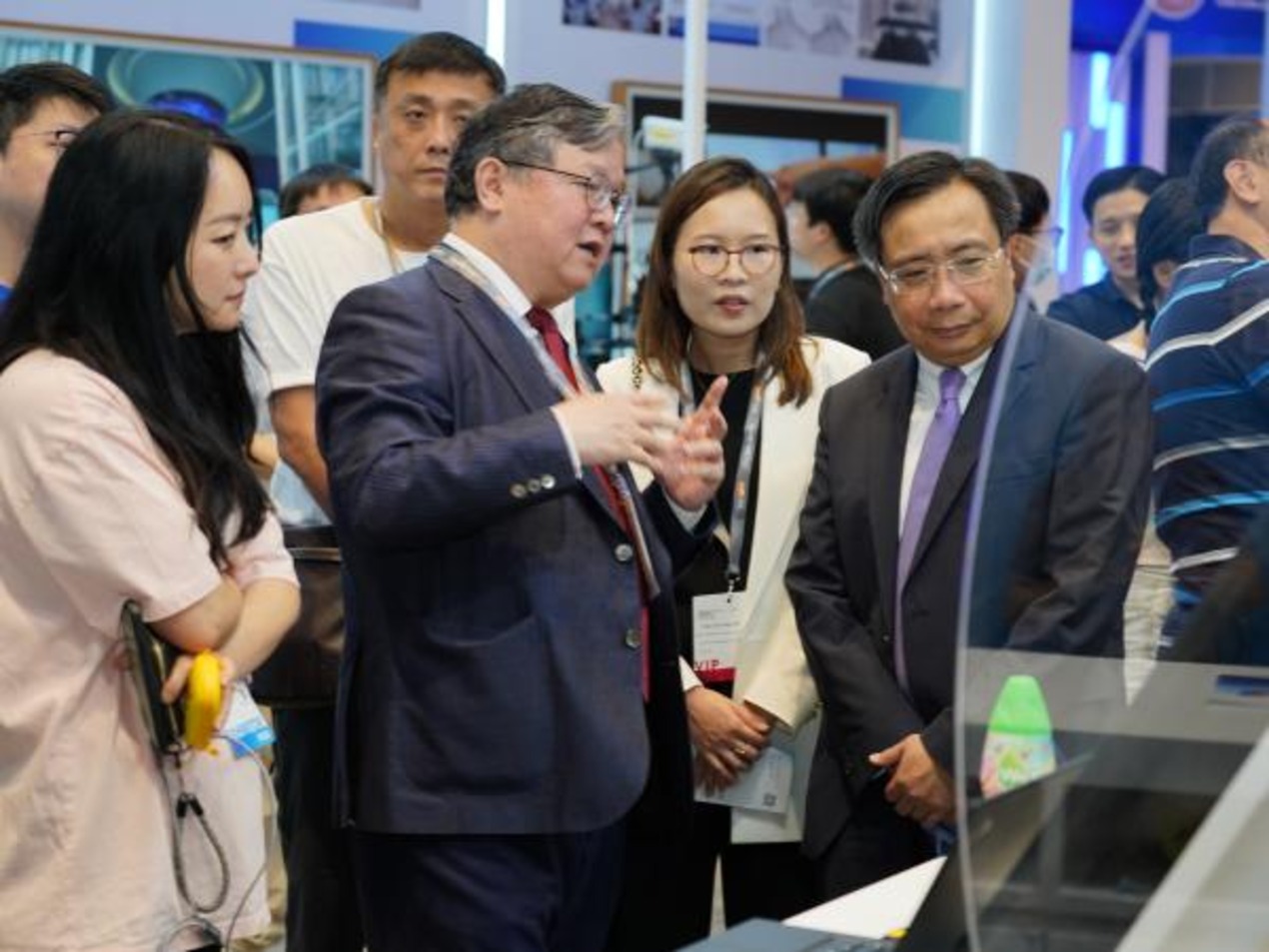
Bringing together education, research and
industry, the city of Grenoble is today one of the most important research,
technology, and innovation centers in France, as well as Europe.
The city in south-eastern France, at the
foot of the French Alps, is home to multinational enterprises such as
STMicroelectronics, Schneider Electric, Caterpillar, Hewlett Packard and many
more. In fact, five out of the top 10 employers in Grenoble are foreign-owned
private companies. It has a thriving startup ecosystem and several
international research centres and labs. The city hosts 7000 doctoral students,
half of whom are from abroad.
On the sidelines of IoT Asia 2018, OpenGov
had the opportunity to speak to Dr Claus Habfast, Municipal Councillor of
Grenoble and Vice President of the Greater Grenoble City Area, the local
government structure responsible for smart city projects in energy, transport,
economic development, waste collection, water & sanitation.
Reducing
the carbon footprint
Dr Habfast explained that in the mountains climate
change is twice as strong as in the plains. This directly affects Grenoble. Grenoble
is affected by the melting of the glaciers, by the complete disturbance of the
water circuit in the mountains and by difficult weather conditions that changes
the way people can live in the mountains.
“So we are feeling the responsibility as a
city in the mountains to participate in the global effort to reduce the carbon
footprint,” Dr Habfast said.
The carbon sources are linked to urban
transport and to heating. So, the city is attempting to make people use mass
transport, encouraging electric vehicles and urging people to use bicycles and
to walk.
As an example, Dr Habfast explained that
the bicycle is the most environment friendly way of urban transport and Grenoble
has now reached 15% of bicycle use for work-to-home transport, which is second place
in France.
Grenbole has a bike rental system where people
can rent bikes at a very modest fee. This system is completely integrated into
the mass transport infrastructure. For people who don’t want to use the bike, the
city has developed mass transport with a system of trams and buses. As a next
step, the city is working on using the empty seats in cars.
Dr Habfast said, “Because for each driver,
you normally have three empty seats in the car, which uses energy and causes
air pollution.”
With regards to urban heating, the city
administration is putting into place new ways of energy provision for heating and
general energy use, in order to reduce energy consumption.
Grenoble has one of the densest networks of
urban heating in France and it is being converted from oil to wood. The city is
also generating energy from waste.
In parallel, there is a large programme
wherein the city government helps building owners to install thermal insulation
in their buildings, and in some cases, even subsidise the activity.
Data
requirement for the next steps
Till now, the steps taken by the city
administration to reduce the carbon footprint have not involved significant use
of big data.
But now that the first steps have been
done, data is required to go further. For example, data will be required to
develop smart grids and use wind and photovoltaic power. Because these renewable
sources of energy are intermittent, and the electricity is not always generated
at the moment when it is required, flexible smart grids with communication between the utility and
its customers, sensing along the transmission lines and load adjustment, play
an essential role in successful integration of renewable energy systems.
Data will also be required for the
carpooling initiative mentioned earlier which aims to reduce unused seats in
cars, because there is a need to know and understand the movement of cars and
match demand and supply.
“For all this we need data. Making data
available for these public services is at the core of our current initiatives,”
Dr Habfast said.

The
need to ensure security and privacy of citizen data
We asked Dr Habfast about the imperative to
protect citizen data in the context of increasing volumes of personal data
being collected and the European Union’s General Data Protection Regulation (GDPR), which
will be applicable from May 2018 onwards.
He pointed out a contradictory attitude in
people’s attitude to sharing data. Most people do not hesitate to have a smart
device, such as Alexa or Google Home in their homes. These devices capture
everything that is said in the room through a microphone and the data is sent
to the cloud (data centres around the world) for analysis.
But when the same people are asked to send
half-hourly data on electricity consumption via a smart meter to the local
electricity provider, they might object saying that they don’t want the electricity
provider to know about their energy use profile.
This discrepancy has to be overcome, and it
is a matter of trust. Dr Habfast said, “People have to trust that the data that
they give is not going to be used against their interest and that their privacy
is not violated. And the second and more important element, and this is new in
the European law, they have to be able to withdraw all their data. All data
that has been collected in the past has to be deleted.”
Handing people control over their data could
help in engendering trust. So that people can decide application by
application, service by service, whether you release your personal data in
order to blend it into a service or whether you refuse.
“That for us is an important element, which
we would like to implement when we use data for the public services in order to
reduce the carbon footprint.”
The
challenge of ensuring inclusive growth
Though Grenoble has lost of its
manufacturing base, the city is today a R&D and innovation hub.
“Our industrial activity now is more
R&D than manufacturing. It needs to be high value-add in order to be
sustainable as industrial activity in a country like France,” Dr Habfast noted.
With its universities, big companies’ R&D
establishments and startups, one part of the population in Grenoble is prepared
for and is thriving in the 21st century.
But then there are also people who don’t
have a strong academic background, very often don’t even have a high school
degree, who face difficulties in finding jobs leading to high youth
unemployment. This challenge of driving inclusive growth is an urgent one. The
rise of automation and developments in emerging technologies, such as
artificial intelligence, could further compound the situation.
“We don’t want to have a society or a city
running at two speeds. It is important
that we don’t solve our problems only for those who already know how to help
themselves. We must not forget those who need more care and more help, to not
be left behind,” Dr Habfast told us.
He added that the youth unemployment for
the ‘non-properly qualified’ young people reflects what will happen to other countries
or territories in the future.
To tackle the issue training is important.
At the same time, it has to be shown to young people that it pays off to train.
Because training and learning is an effort and if they are unable to find a job
after wards, because they are from a minority, it can lead to discontent and
loss of motivation for others.
The same goes for girls. Dr Habfast said
that girls should learn coding and they must not be afraid to enter into tech
jobs because that is where the opportunities are.
Thus, Grenoble is a bit further down the
road in terms of the visible impact of technology, and the city is trying to
learn how to avoid the social drawbacks of technological revolution.
Regulations
One key aspect of the government’s approach
is to regulate to deal with the ramifications of technology. For instance,
Airbnb is not a problem in Grenoble at the moment. But if it becomes a problem,
the city might introduce regulations, like in other European cities, such as Barcelona,
Amsterdam or Berlin, so that it does not destroy the character of the inner
city and the social structure.
Dr Habfast cautioned that the government
always has to regulate with the citizens and stakeholder bodies. Government must
keep an open ear and listen to the people.
For example, next year, the city will stop
access to the inner part of the metropolitan area for all polluting diesel cars
and delivery vehicles. The delivery lorries will either have to have clean
engines or they have to work through a logistics platform.
It’s important to ensure that nobody is
excluded or left behind when introducing a regulation like this. Alternative
solutions have to be shown, if the regulation will make people change the way
they work.




















